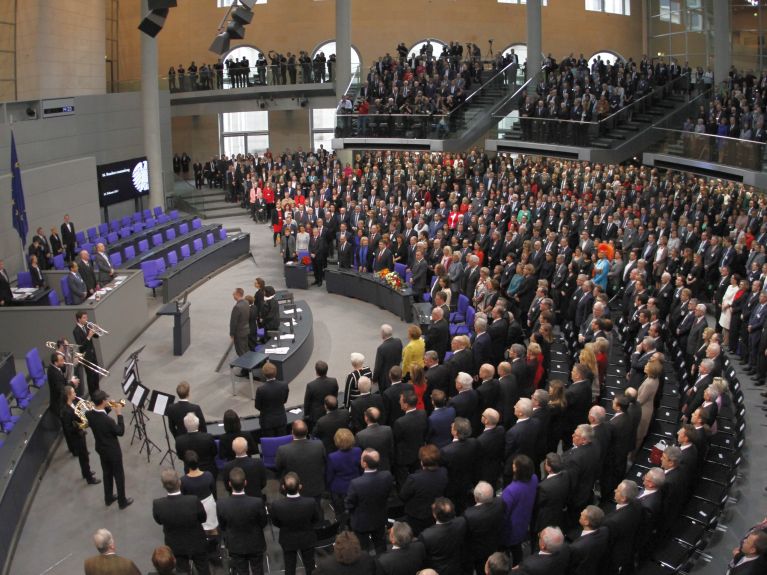Assembly convenes for one election
The Federal Assembly has only one task: to elect the Federal President. Incumbent Steinmeier is now standing for re-election.

Frank-Walter Steinmeier has been Germany's Federal President since 2017. On 13 February he will stand for re-election by the Federal Assembly, which only meets to elect Germany's head of state. We explain the composition of this assembly and how the election will take place.

Who elects the Federal President?
In Germany, unlike in many other countries, the Federal President is not elected directly by the people. Instead, the Federal Assembly convenes for this purpose, and its only task is to elect the head of state. The Assembly is made up of the currently 736 MPs in the Bundestag plus the same number of representatives from the 16 Länder (federal states). This means that this year the body will comprise a record 1,472 members.
However, the Assembly is not only made up of politicians – traditionally, numerous prominent people also take part in electing the Federal President. In 2022, the parties again nominated numerous well-known faces from the fields of science, culture and sports, including Biontech co-founder Özlem Türeci, virologist Christian Drosten, national soccer player Leon Goretzka, pianist Igor Levit and astronaut Alexander Gerst. Former German Chancellor Angela Merkel, who has retired from active politics, and several caregivers will also take part in the vote.
How does the election work?
The Federal Assembly is chaired by Bundestag President Bärbel Bas. The vote is taken by secret ballot. In the first and second ballots, an absolute majority – i.e. at least 50 percent of the votes cast – is needed for election. If a third ballot is required, a relative majority is sufficient, i.e. the candidate who wins the most votes becomes Federal President.
How certain is Steinmeier's election?
No one doubts that the incumbent Federal President will be re-elected. In the run-up, the parties that together form the Federal Government (SPD, Greens and FDP) as well as the opposition parties CDU and CSU have assured him of their support – so that an absolute majority for Steinmeier is seen as a certainty. The opposing candidates nominated by the Left Party, the AfD and the Free Voters are considered to have no chance.
In more than 70 years, the Federal Republic of Germany has had twelve Federal Presidents – none of whom so far has been a woman. A new president will have to be elected in five years at the latest, since the Basic Law (Germany's constitution) only allows an incumbent president like Steinmeier to be re-elected once.
What are the duties of the Federal President?
In terms of protocol, the Federal President is the head of the state. He or she represents Germany at home and abroad. Their duties also include officially appointing the Federal Chancellor and federal ministers. He or she also signs all laws. Compared to countries like France or the United States, however, the Federal President has little direct political power.


